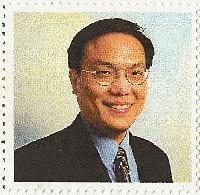| Pages in topic: < [1 2 3 4 5 6 7 8 9 10 11 12 13 14 15 16 17] > |
行万里路,译万字书--freelancer's lifestyle Thread poster: Ying Wang
|
|---|
Fargoer
Canada
Local time: 09:36
English to Chinese
Zhoudan wrote: 不一定要接口的。我去年买了一台能上网的电视机,有一个功能是播放平板上的内容(不需要连线),还可以用手机当遥控器。估计春仪的电视有蓝牙的。 Fargoer wrote: Chun-yi Chen wrote:
我是從平板上的開迅app下載後在電視上看。盯著電腦的時間已經夠長了,再用它來看電視節目
豈不是都不用離開書房了?
下载到平板后怎样在电视上看?平板连接电视吗?您的平板电脑有HDMI端口?平板连接了电视,不是可以直接在电视上看网上的视频节目吗?为什么还要下载? 我是用一部比较老的笔记本电脑连接电视,直接在电视上看网络节目。这个本本很慢,可是它有VGA端口,连接电视比较方便。:)
您用的是智能电视,更先进更方便。估计Chun-yi Chen 和您的情况类似。其实,电视与平板或本本的连接,不管是有线(VGA或HDMI)还是无线(WIFI传输加Bluetooth操作),都可以直接从网络上在线观看视频内容。我不明白的是为什么要下载。:)
[Edited at 2014-02-23 11:21 GMT]
[Edited at 2014-02-23 11:23 GMT]
[Edited at 2014-02-23 14:11 GMT]
| | | |
jyuan_us 
United States
Local time: 11:36
Member (2005)
English to Chinese
+ ...
J.H. Wang wrote: 
| | | |
wherestip 
United States
Local time: 10:36
Chinese to English
+ ...
Zhoudan wrote:
不一定要接口的。我去年买了一台能上网的电视机,有一个功能是播放平板上的内容(不需要连线),还可以用手机当遥控器。估计春仪的电视有蓝牙的。
http://en.wikipedia.org/wiki/Smart_TV
http://www.slashgear.com/samsung-d9500-is-75-inches-of-smart-tv-09150902/
Samsung TVs have a lot of leading-edge features. But as far as I know, they haven't incorporated a Bluetooth transmitter for sound yet, only for a mouse and a keyboard to navigate the Smart TV menus.
I still rely on my trusted Blu-ray and DVD discs. Some people say Blu-rays and DVDs are going to be obsolete in a few years. But I don't believe it.
Last year I got a 75-inch Samsung TV. For me, the Smart TV features are there just for "assurance"  , 'cause I never stream anything from the web. I only tested the function out once to make sure it works. , 'cause I never stream anything from the web. I only tested the function out once to make sure it works.
[Edited at 2014-02-23 22:47 GMT]
| | | |
Fargoer
Canada
Local time: 09:36
English to Chinese
Yan Yuliang wrote: 忽然想起大学上过的语言学课,搜到了索绪尔的符号学维基百科。 索绪尔符号学的特点是:
单一符号(sign)分成能指(Signifier)和所指(Signified)两部分。能指是符号的语音形象;所指是符号的意义概念部份。由两部份组成的一个整体,称为符号。
能指和所指两者之间的关系是任意性(arbitrariness),没有必然关连。例如英文中的“tree”的发声及串字组合,因约定俗成的习惯被指涉为“一种以木质枝杆为主体的叶本植物”的概念。 我觉得用来解释语言的变迁非常合适。一个词语,可以视作一个sign,其“能指”部分是固定的,而其“所指”的部分则会不断变迁。“约定俗成”是赋予符号“所指”的一种方法,但并非唯一的方法。 按照这样的解读,这种现象,可否理解为语言的“去粗俗化”?即,将语言中“所指”的粗俗涵义,替换成并不粗俗的涵义。如“哇塞”的所指,已经变成了表示惊叹。很多人说这个词语的时候,他们的所指肯定并非其最早的涵义。
您用索绪尔的符号学来解释词语的“去粗俗化”,是可贵的尝试。也说说我的理解。
索绪尔的符号学理论,抽象度非常高,大概应该说是“元语言学理论”或“语言哲学”。直接用来解释日常语言现象可能有困难。
首先,能指与所指之间的关系的“任意性”,是一种逻辑上的任意性,或者说是共时结构上的任意性。英文用“tree”这个声音来指代“木本植物”这个概念,中文用“shu4”来指代。索绪尔的意思只是说,“tree”这个声音,和“木本植物”这个概念之间,没有必然的逻辑联系。它们之间不能互相导出,也不能互相还原。但这仅仅是逻辑上的,共时性的。而不是现实历史的,不是历时性的。不是说“tree”这个声音可以任意地脱离“木本植物”的概念并任意地与其他概念结合。词义的转变在历史上不是任意发生的。在现实中,能指与所指的粘接是非常紧密的。词义的转换通常比较缓慢,受到社会政治经济文化变迁和人的心理过程的必然影响。
举个例子来说,交通管理的红绿黄灯,是一个简单的符号体系,也是一种语言。不过这里的能指不是声音而是颜色。红色代表停止的命令,绿色代表通行的命令,黄色代表慢行的命令。这种指定显然在逻辑上是任意的。当初如果用红色代表通行,绿色代表停止,在逻辑上完全是成立的。然而要把这两者颠倒过来,逻辑上可能但现实上几乎不可能。首先,红色代表停止,在心理学上是有利的。即使不考虑习惯的力量,令人兴奋的红色警示危险、令人宁静的绿色表示安全,与人们的直接心理反应相符,人们比较不容易犯错误。反过来会比较不安全。更不要说改变交通信号体系的社会经济成本会大到不能承受。
回到粗俗语词的问题。就说“哇塞”这个词。按照chun-yi Chen 提供的情况看,现在的台湾人普遍不把“哇塞”当作脏话来用。说者和听者都不觉得脏。但这是不是说“哇塞”真的完全去粗俗化了呢?Chun-yi Chen 所依稀记得的长辈对这个语词的态度,清楚地标明了它“脏”的来源。人们的集体记忆中这个“不良出身”会越来越淡化。但这个过程需要有一些特殊的条件。我以前考虑过台湾与大陆的相对地理距离的作用。在台湾本身,可能还有“国语”族群与“台语”族群的相对分隔的因素。我猜测,台语族群对这个语词的不良出身的集体记忆会保留的更久远。我想,什么时候当使用这个语词的所有人都完全忘记了这个词的不良出身,连词典都不收录它原始的词义时,或者说它的原始含义完全死亡,这个语词才真正去粗俗化。即使到那个时候,它的“出身”还是存在于历史文献和语言学家的论文中。
再说“夺了鸟位”中这个“鸟”字。现在好像多数人都把它读作“niao3”了。但不是所有的人都忘记了它背后的那个脏字。即使忘了或不曾知道,也很容易在某些刺激下回忆起来,或者自己悟出来。前几天看电影《遍地狼烟》,里面有这样一段台词:“我、小斌和几个新兵蛋子跟着猛子,在沙丘上整整干煎了五天,等目标出现的时候,蛋也烘熟了。其中一个新兵蛋子,闪了身板折了腰,鸟都飞不起来了。”这里的“蛋”和“鸟”指的是什么,成年人都懂得。看来这个字要去粗俗化,道路更漫长。

[Edited at 2014-02-23 19:26 GMT]
| | |
|
|
|
ysun 
United States
Local time: 10:36
English to Chinese
+ ...
|
Fargoer
Canada
Local time: 09:36
English to Chinese
1976年元旦,老人家发表旧词作《念奴娇 · 鸟儿问答》。最后大声斥道:“不须放屁,试看天地翻覆!”
“放屁”二字入诗,有人居然在《何典》中找到了出典。没人敢说不雅,也没人敢于效法。但很难说对今日的文人没有影响。
| | | |
wherestip 
United States
Local time: 10:36
Chinese to English
+ ...
Fargoer wrote:
1976年元旦,老人家发表旧词作《念奴娇 · 鸟儿问答》。最后大声斥道:“不须放屁,试看天地翻覆!”
“放屁”二字入诗,有人居然在《何典》中找到了出典。没人敢说不雅,也没人敢于效法。但很难说对今日的文人没有影响。
I think you got the date confused. It was the autumn of 1965.
| | | |
wherestip 
United States
Local time: 10:36
Chinese to English
+ ...
| Release Date | Feb 24, 2014 |
You were right. I didn't see the words "release of"(发表). My apologies.
I don't think describing all bodily functions is objectionable though. IMO, you really have to be a prude to object to seeing "pass gas" in print. How about burping?
That said, IMO using swear words such as "fangpi" in poetry IS out of the norm. But Mao was mad at Khrushchev, and did use some colorful language towards him.
[Edited at 2014-02-24 14:04 GMT]
| | |
|
|
|
wherestip 
United States
Local time: 10:36
Chinese to English
+ ...
J.H. Wang wrote: 我个人对此唯一的评论是: No comments! 
Usually I don't even click on something with a title like this. But I made an exception and glanced at it this morning.
Now I understand where this modern-day culture has been and where it is going. Sorry for being so slow to catch on. All I can say is keep the torch burning, guys.
| | | |
ysun 
United States
Local time: 10:36
English to Chinese
+ ...
Fargoer wrote:
1976年元旦,老人家发表旧词作《念奴娇 · 鸟儿问答》。最后大声斥道:“不须放屁,试看天地翻覆!”
“放屁”二字入诗,有人居然在《何典》中找到了出典。没人敢说不雅,也没人敢于效法。但很难说对今日的文人没有影响。
连少奇同志、彭大将军都不敢。不过要是换作美国总统,他在演说时乱放一个试试!
[Edited at 2014-02-24 18:59 GMT]
| | | |
David Lin 
United Kingdom
Local time: 16:36
Member (2013)
English to Chinese
+ ...
Moderator of this forum | More than colourful language by Khrushchev | Feb 24, 2014 |
wherestip wrote:
You were right. I didn't see the words "release of"(发表). My apologies.
I don't think describing all bodily functions is objectionable though. IMO, you really have to be a prude to object to seeing "pass gas" in print. How about burping?
That said, IMO using swear words such as "fangpi" in poetry IS out of the norm. But Mao was mad at Khrushchev, and did use some colorful language towards him.
[Edited at 2014-02-24 14:04 GMT]
And then what did Khruschev do in the United Nations General Assembly in 1960? It's more than colourful languages!
http://en.wikipedia.org/wiki/Shoe-banging_incident
| | | |
wherestip 
United States
Local time: 10:36
Chinese to English
+ ...
| Alleged shoe-pounding incident at the podium | Feb 24, 2014 |
David,
Chronologically speaking, the alleged shoe-pounding incident by Khruschev at the UN happened in 1960, and Mao didn't openly denounce Soviet Union's revisionism (of Marxism) until the 1961, 1962 time frame.
But anyway, without making any judgment of past history, it's hard to say which one is worse in everyday life: openly swearing in public or making a scene in public but keeping it clean. I personally think the latter is marginally more dignified. Of course one has to take into consideration the cause in either case.
[Edited at 2014-02-25 16:49 GMT]
| | |
|
|
|
David Lin 
United Kingdom
Local time: 16:36
Member (2013)
English to Chinese
+ ...
Moderator of this forum | public scene | Feb 26, 2014 |
wherestip wrote: David, Chronologically speaking, the alleged shoe-pounding incident by Khruschev at the UN happened in 1960, and Mao didn't openly denounce Soviet Union's revisionism (of Marxism) until the 1961, 1962 time frame. But anyway, without making any judgment of past history, it's hard to say which one is worse in everyday life: openly swearing in public or making a scene in public but keeping it clean. I personally think the latter is marginally more dignified. Of course one has to take into consideration the cause in either case.  [Edited at 2014-02-25 16:49 GMT]
Wow, I didn't realize they happened so close to each other at the time. Definitely the cause should be taken into consideration with regard to marginal dignity. Speaking about shoes, how about the shoe thrown to George W. Bush? Was it at a press conference? It was quite dignified against the infamous Iraq War as background of all this (from the thrower's point of view perhaps).
This brings to mind the guy who threw white stuff to Rupert Murdoch at the parliamentary hearing of phone hacking. And his Chinese wife became a hero to defend his then embattled husband.
| | | |
wherestip 
United States
Local time: 10:36
Chinese to English
+ ...
| No longer a matter of making a scene | Feb 26, 2014 |
David Lin wrote:
Speaking about shoes, how about the shoe thrown to George W. Bush? Was it at a press conference? It was quite dignified against the infamous Iraq War as background of all this (from the thrower's point of view perhaps).
This brings to mind the guy who threw white stuff to Rupert Murdoch at the parliamentary hearing of phone hacking. And his Chinese wife became a hero to defend his then embattled husband.
David,
Those kinds of confrontations are outside the realm of making a scene. Technically, they are physical assaults. I think the guy that threw a shoe at Bush had to do some time.
| | | |
ysun 
United States
Local time: 10:36
English to Chinese
+ ...
|
| Pages in topic: < [1 2 3 4 5 6 7 8 9 10 11 12 13 14 15 16 17] > |








